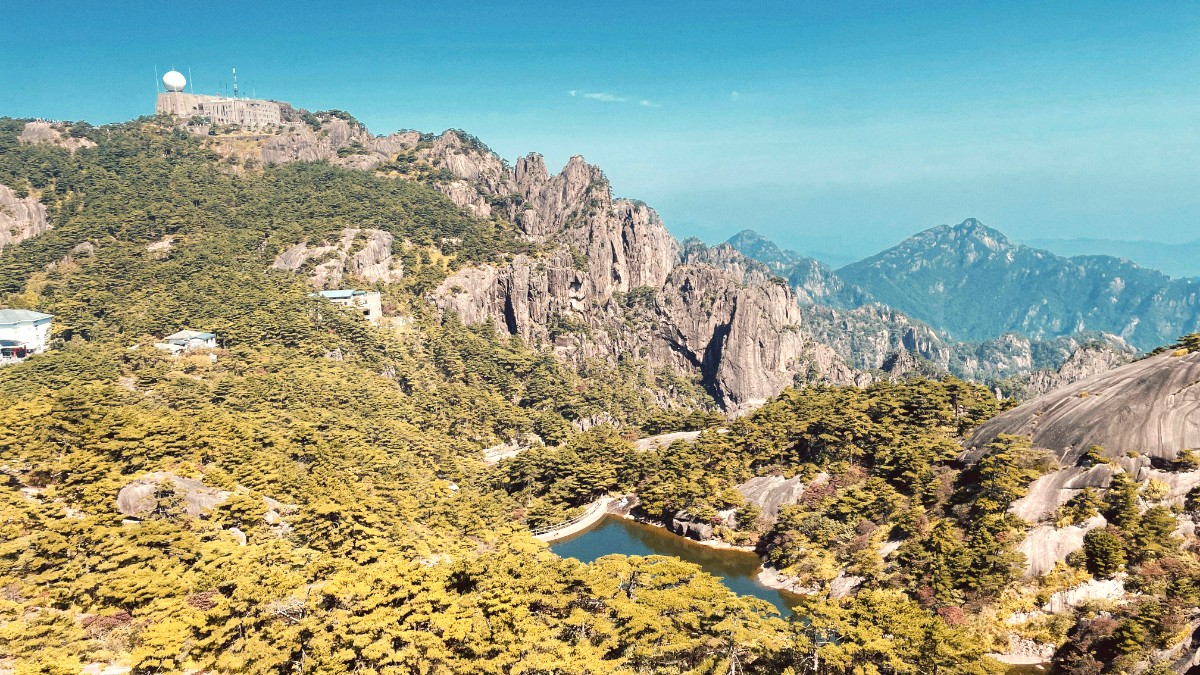
Anhui, China
Local SIM cards from China Mobile, China Unicom, or China Telecom offer reliable 4G/5G coverage, including parts of Huangshan Mountain. You need your passport for registration. Hotels generally provide free Wi-Fi, though public Wi-Fi can be limited.
Mandarin Chinese is the official language. English is spoken in major hotels and tourist areas, but less so elsewhere. Prepare with translation tools for smoother interactions.
Activating a VPN after arriving in China can be difficult due to internet restrictions. Set up your VPN before travel.
Shops typically open 9 AM/10 AM to 9 PM/10 PM. Restaurants serve lunch from 11 AM-2 PM and dinner 5 PM-9 PM/10 PM. Banks operate 9 AM-5 PM on weekdays. Major attractions, including Huangshan Scenic Area, have specific seasonal hours. Most museums close on Mondays.
ATMs are widely available in Huangshan City (Tunxi). Less common in Tangkou; rare on the mountain itself. Banking hours vary; check specific branch times.
Chinese national holidays lead to immense domestic travel and potential closures or altered hours for some businesses. Plan accordingly.
Chinese national holidays lead to immense domestic travel and potential closures or altered hours for some businesses. Plan accordingly.
Some mountain trails or cable cars on Huangshan may close for maintenance or due to severe weather conditions like heavy snow or ice.
Some mountain trails or cable cars may close for winter maintenance (mid-Dec to mid-Jan) or due to severe weather. Check official park announcements for current operational status.
Engaging respectfully with local customs and traditions enriches your travel experience in Huangshan.
A simple 'Nǐ hǎo' (Hello) is appropriate. A nod or slight bow is common. Handshakes are also common in formal settings. Casual wear is suitable for most places. Modest dress shows respect when visiting temples.
Certain topics and behaviors are best avoided to maintain cultural harmony.
When visiting temples or other sacred places, observing specific customs shows reverence.
Respect for privacy and cultural norms is paramount when taking photographs.
A willingness to learn and adapt to local customs will greatly enrich your travel experience. Locals appreciate the effort.
Huangshan's challenging terrain presents specific considerations for travelers with mobility needs.
The Huangshan Mountain, with its thousands of steps and uneven paths, remains difficult for those with mobility impairments. Tunxi City is more navigable, but sidewalks can be uneven.
Cable cars provide access to the top of Huangshan, but further exploration on the mountain is challenging without significant mobility. Some flatter sections exist around hotel areas.
Specialized services for travelers with visual or hearing impairments are limited. Travelers often prepare with relevant apps or travel with companions.
While efforts are made, significant mobility on Huangshan Mountain remains a challenge due to its inherent terrain. Tunxi City offers better, but still varied, accessibility.
Travelers with mobility challenges will find Huangshan Mountain exceptionally difficult. Tunxi City is more manageable but still has uneven areas.